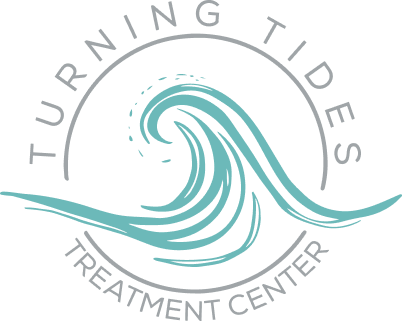Group Therapy
Group Therapy: A Proven Tool for Substance Abuse Recovery
Group therapy has long been recognized as a valuable tool in the recovery process for individuals struggling with substance abuse. Through the power of shared experiences, building a support network, and gaining valuable skills, group therapy offers a unique and effective approach to overcoming addiction. We will explore the various aspects of group therapy and its profound impact on substance abuse recovery.
Understanding Group Therapy
Group therapy is a form of psychotherapy where a small group of individuals, typically led by a trained therapist, come together to support each other in achieving common goals. This therapeutic approach allows participants to connect with others who have similar experiences and struggles, providing a sense of understanding, validation, and encouragement.
Group therapy has been proven to be an effective treatment option for a wide range of mental health concerns. Whether it’s dealing with anxiety, depression, addiction, or trauma, group therapy offers a unique opportunity for individuals to share their experiences and learn from one another. By hearing different perspectives and witnessing the growth of others, participants can gain valuable insights and develop new coping strategies.
The Basics of Group Therapy
In group therapy sessions, individuals are encouraged to openly share their thoughts, feelings, and experiences in a safe and confidential environment. This open and honest communication creates a sense of trust and vulnerability within the group, allowing for deeper connections to be formed.
Group therapy sessions often follow a structured format, with each participant given the opportunity to speak and be heard. This format ensures that everyone has an equal chance to express themselves and receive support from the group. The therapist acts as a facilitator, guiding the discussion and ensuring that it remains focused and productive.
One of the unique aspects of group therapy is the power of peer support. Participants not only receive guidance and support from the therapist but also from their fellow group members. This sense of camaraderie and shared experience can be incredibly empowering and validating.
The Role of a Therapist in Group Sessions
The therapist’s role in group sessions is to facilitate and guide the process, ensuring that everyone has the opportunity to express themselves and be heard. They provide a structured and supportive environment that encourages open communication and fosters a sense of trust among group members.
Therapists in group sessions are trained to create a safe space where individuals feel comfortable sharing their thoughts and emotions. They actively listen to each participant, offering empathy, validation, and guidance when needed. By creating a non-judgmental atmosphere, therapists help individuals feel accepted and understood.
In addition to facilitating discussions, therapists also introduce various therapeutic techniques and exercises to enhance the group’s experience. These may include mindfulness exercises, role-playing, or cognitive-behavioral techniques. By incorporating these techniques, therapists help individuals develop new skills and strategies to manage their emotions and improve their overall well-being.
Furthermore, therapists play a crucial role in maintaining the group’s dynamics and ensuring that everyone feels respected and supported. They address any conflicts or issues that arise within the group, promoting healthy communication and problem-solving.
Overall, group therapy offers a unique and powerful healing experience. It provides a space for individuals to connect, grow, and learn from one another. Through the guidance of a skilled therapist and the support of their peers, participants can embark on a journey of self-discovery and personal transformation.
The Connection Between Group Therapy and Substance Abuse Recovery
Group therapy plays a vital role in substance abuse recovery due to its unique benefits and impact on participants. One of the key elements that make group therapy effective is the power of shared experiences.
The Power of Shared Experiences
Being part of a group of individuals who understand the challenges of addiction firsthand can be incredibly empowering. It affirms that individuals are not alone in their struggles and provides a sense of belonging. By listening to others’ stories, participants gain insight into their own addiction patterns, triggers, and coping mechanisms. They also learn from each other’s successes and failures, motivating them to stay committed to their recovery journey.
For example, imagine a group therapy session where participants share their experiences with relapse. One member may talk about the emotional turmoil they went through leading up to their relapse, while another may share the strategies they used to prevent a relapse from happening. These stories not only provide valuable lessons but also create a sense of camaraderie among the group members.
Furthermore, shared experiences in group therapy can help individuals develop empathy and compassion towards others. They begin to understand that addiction is a complex issue that affects people from all walks of life. This understanding can break down barriers and stereotypes, fostering a more inclusive and supportive environment.
Building a Support Network Through Group Therapy
Group therapy creates a supportive and non-judgmental environment where individuals can form meaningful connections with others who share similar goals and aspirations. This support network becomes an invaluable resource in times of crisis or temptation, offering encouragement, accountability, and understanding. Knowing that others are rooting for their success can significantly increase an individual’s motivation and commitment to sobriety.
During group therapy sessions, participants have the opportunity to share their challenges, fears, and triumphs with others who truly understand what they are going through. This level of understanding and empathy can be difficult to find in other settings. It allows individuals to feel heard, validated, and supported, which can be instrumental in their recovery journey.
Moreover, the support network formed in group therapy extends beyond the therapy sessions themselves. Participants often exchange contact information and stay connected outside of the group setting. They may meet up for coffee, attend recovery meetings together, or simply check in on each other’s progress. This ongoing support and connection can help individuals stay accountable and motivated, even when faced with difficult circumstances.
In addition to emotional support, the support network built through group therapy can also provide practical assistance. For instance, if someone is struggling to find stable housing or employment, fellow group members may offer guidance, resources, or even potential job opportunities. This collaborative approach can help individuals address various aspects of their lives that may have been negatively impacted by substance abuse.
Overall, group therapy serves as a powerful tool in substance abuse recovery by harnessing the power of shared experiences and building a supportive network. It offers a safe space for individuals to connect, learn, and grow together, ultimately increasing their chances of long-term sobriety.
Different Types of Group Therapy for Substance Abuse
Group therapy for substance abuse recovery can take various forms, tailored to meet the unique needs and preferences of participants. Two common types of groups are cognitive-behavioral groups and skills development groups.
When it comes to overcoming substance abuse, there is no one-size-fits-all approach. Each individual’s journey to recovery is unique, and group therapy provides a supportive and empowering environment for individuals to heal and grow together. Let’s take a closer look at cognitive-behavioral groups and skills development groups, two effective types of group therapy for substance abuse recovery.
Cognitive-behavioral groups focus on identifying and challenging negative thoughts, beliefs, and behaviors that contribute to substance abuse. By exploring the underlying causes and triggers of addiction, participants gain a deeper understanding of their destructive patterns. Through cognitive restructuring and skill-building exercises, they learn how to replace self-destructive thoughts and behaviors with healthier coping strategies.
During cognitive-behavioral group sessions, participants engage in open and honest discussions, sharing their experiences, challenges, and successes. This process of self-reflection and peer support helps individuals gain insight into their own addictive behaviors and provides them with a sense of community and connection. The group dynamic fosters empathy, understanding, and accountability, creating a safe space for individuals to explore their vulnerabilities and work towards lasting change.
In skills development groups, participants acquire practical skills and tools to navigate the challenges of recovery successfully. These groups focus on equipping individuals with the necessary skills to maintain sobriety and build a fulfilling life free from substance abuse.
Topics covered in skills development groups can vary widely, depending on the specific needs of the participants. Common areas of focus include stress management, communication skills, assertiveness training, and relapse prevention strategies. Through interactive exercises, role-playing, and group discussions, participants learn how to effectively manage stress, communicate their needs and boundaries, and develop healthy coping mechanisms.
Skills development groups also provide a platform for individuals to share their personal strategies for staying sober and overcoming obstacles. This peer-to-peer learning approach allows participants to draw inspiration from one another and gain practical insights and advice. By learning from those who have walked a similar path, individuals in recovery feel supported and motivated to continue their journey towards long-term sobriety.
Group therapy for substance abuse recovery offers a wealth of benefits. It provides individuals with a safe and non-judgmental space to explore their emotions, gain new perspectives, and develop essential skills for sustainable recovery. Whether through cognitive-behavioral groups or skills development groups, group therapy plays a vital role in helping individuals overcome addiction and build a healthier, more fulfilling life.
The Benefits of Group Therapy in Substance Abuse Recovery
Group therapy offers a multitude of benefits that contribute to overall well-being and successful substance abuse recovery.
Substance abuse recovery is a complex and challenging journey that requires a comprehensive approach. While individual therapy plays a crucial role in addressing personal issues and developing coping strategies, group therapy provides a unique and invaluable support system that can greatly enhance the recovery process.
Emotional and Psychological Benefits
Group therapy provides a platform for individuals struggling with addiction to express and process their emotions. In a safe and non-judgmental environment, participants can openly share their experiences, fears, and struggles. Through empathetic listening and feedback from their peers, participants gain insight into their emotional triggers and learn healthier ways to manage their feelings.
Moreover, the emotional catharsis and support experienced in group therapy have a profound impact on individuals’ mental well-being. By witnessing the struggles and successes of others, participants realize that they are not alone in their journey. This sense of solidarity fosters emotional growth and resilience, empowering individuals to face their challenges head-on.
During group therapy sessions, participants also have the opportunity to develop and practice essential communication and interpersonal skills. Through active listening and respectful communication, they learn how to effectively express their thoughts and feelings, while also learning to provide support and encouragement to their peers. These skills are not only beneficial in the recovery process but also in their personal and professional lives.
Social Benefits
Substance abuse often isolates individuals from their social circles, leading to feelings of loneliness and disconnection. Group therapy helps to alleviate these feelings by creating a sense of belonging and community. Participants come together with others who have shared similar experiences, forming bonds based on empathy, understanding, and shared goals.
Through regular interactions in group therapy, participants develop healthy and supportive relationships. They learn to trust and rely on others, which can be particularly challenging for individuals who have experienced broken trust in the past. These relationships provide a strong support system that extends beyond the therapy sessions, offering encouragement, accountability, and friendship.
Furthermore, group therapy enhances participants’ social skills and overall quality of life. As they engage in group discussions and activities, they learn how to navigate social dynamics, resolve conflicts, and build meaningful connections. These skills are invaluable in rebuilding and strengthening relationships with family, friends, and the broader community.
Group therapy is an essential component of substance abuse recovery. Its emotional and psychological benefits, along with the social support and skills it provides, contribute to individuals’ overall well-being and successful recovery. By participating in group therapy, individuals can find solace, understanding, and a renewed sense of hope as they navigate the challenging path towards a healthier and happier life.
Challenges and Considerations in Group Therapy
While group therapy offers numerous benefits, it is essential to acknowledge and address potential challenges that may arise during the process.
Dealing with Group Dynamics
Group dynamics can sometimes be complex and challenging to navigate. Conflicts, power struggles, or a dominant personality may disrupt the therapeutic process. However, these challenges can also provide valuable opportunities for growth and learning. Skilled therapists actively manage and address group dynamics, ensuring that every member feels heard and valued.
Ensuring Confidentiality and Trust
Confidentiality is crucial in group therapy to create a safe space for individuals to share their personal experiences. Participants must trust that their information and stories will be respected and kept confidential. Therapists outline confidentiality guidelines at the beginning of group sessions, fostering trust and a sense of security among group members.

Aftercare and Ongoing Support
Continuing care planning
At Turning Tides Rehab Center, we understand that recovery is an ongoing process. Our continuing care planning ensures that clients have the necessary support and resources in place once they complete their treatment program.
Support groups and resources
We encourage clients to engage in support groups and access various resources, such as 12-step programs or online communities, to maintain their recovery and build a network of support.
Get Help at Turning Tides
Group therapy has proven to be a highly effective tool in substance abuse recovery. Through the power of shared experiences, building a support network, and gaining valuable coping skills, individuals can experience holistic healing and lasting sobriety. By embracing group therapy as part of the recovery journey, individuals can find strength, encouragement, and a renewed sense of hope.
At Turning Tides Rehab Center, our mission is to provide compassionate, evidence-based care to individuals with mental health issues and substance use disorders. Our customized treatment plans, experienced team, and supportive environment create the foundation for lasting recovery and improved mental health. Don’t wait to start your journey toward healing; reach out to us today.

